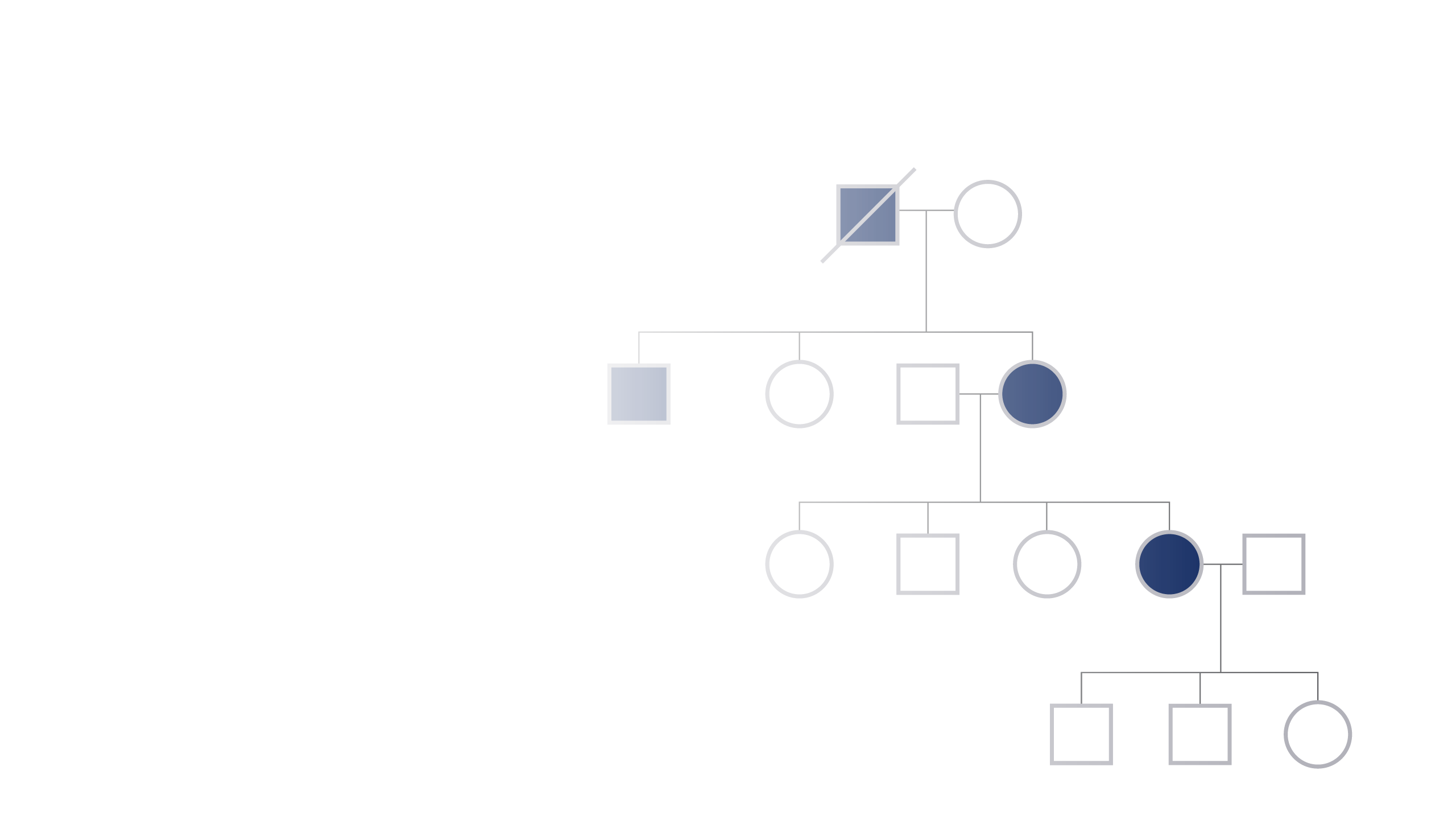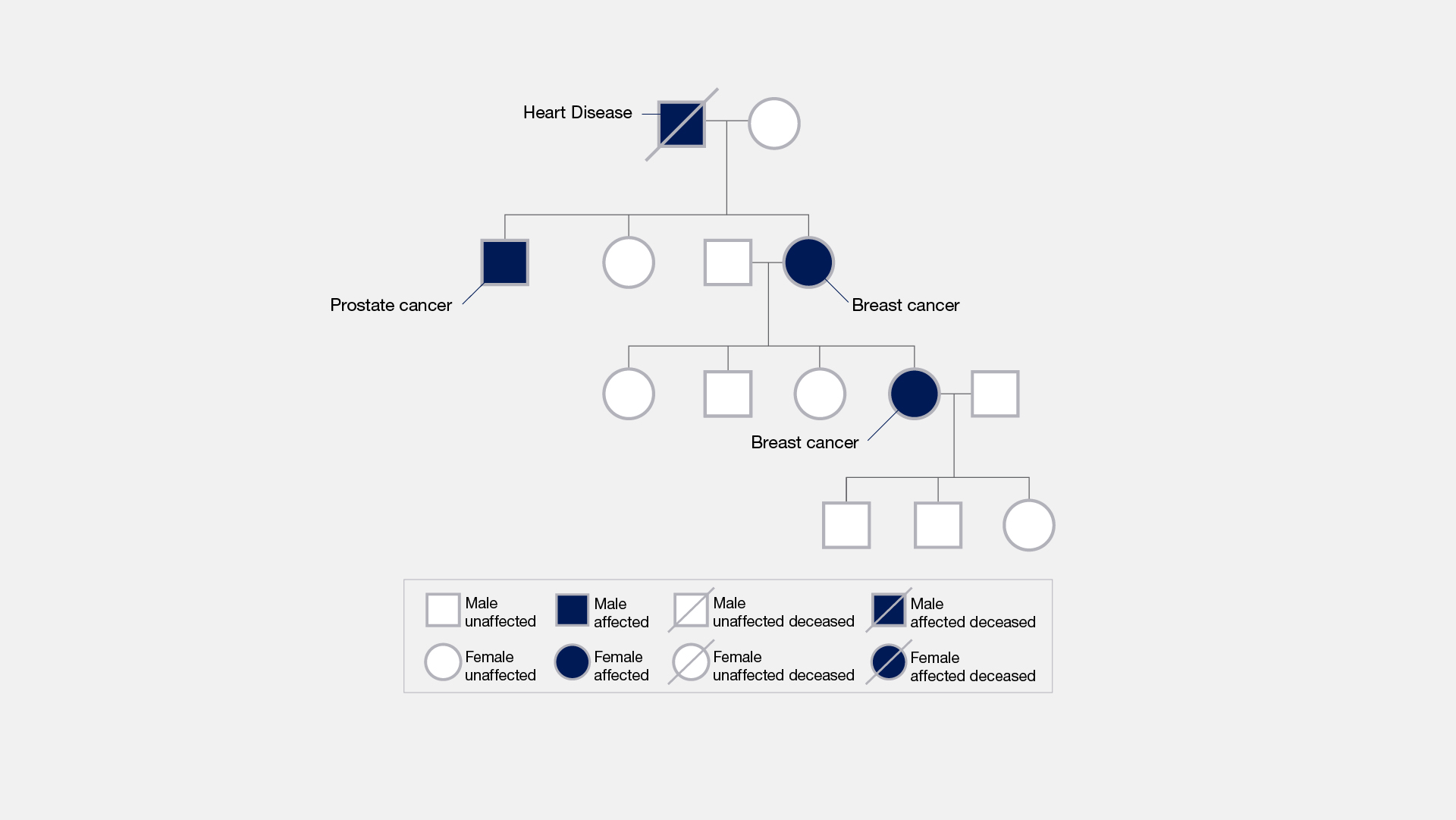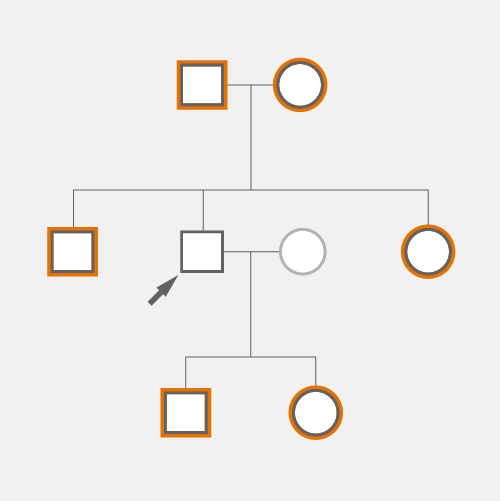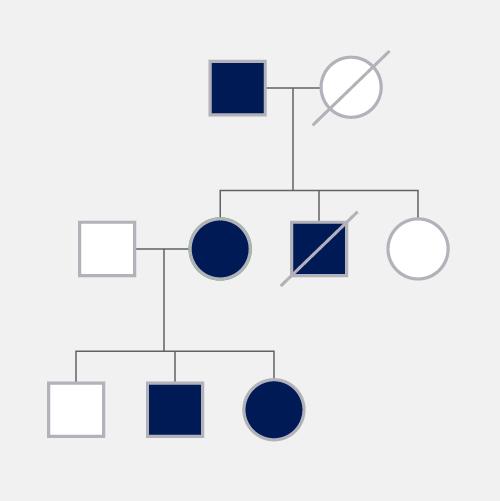
Family History
Definition
A family history, as related to medicine, is a record of the diseases and health conditions of an individual and that person’s biological family members, both living and deceased. A family history can help determine whether someone has an increased genetic risk of having or developing certain diseases, disorders or conditions. It is often recorded by drawing a pedigree (a family tree) that illustrates the relationships among individuals.

Narration
Family History. The family history and recording it through a pedigree helps medical teams understand inheritance and risk. For example, we may know that certain disorders can show in every generation, in which case the disorder would be dominantly inherited. Or in other families, may not be present in every generation and appear as a recessive inheritance, or even follow on with a multifactorial pattern. Recording of an accurate and detailed family history can allow medical teams to gain insights not only into the nature of the condition in a given family, but possibly the severity and risks of who is affected based on the pattern noted.




